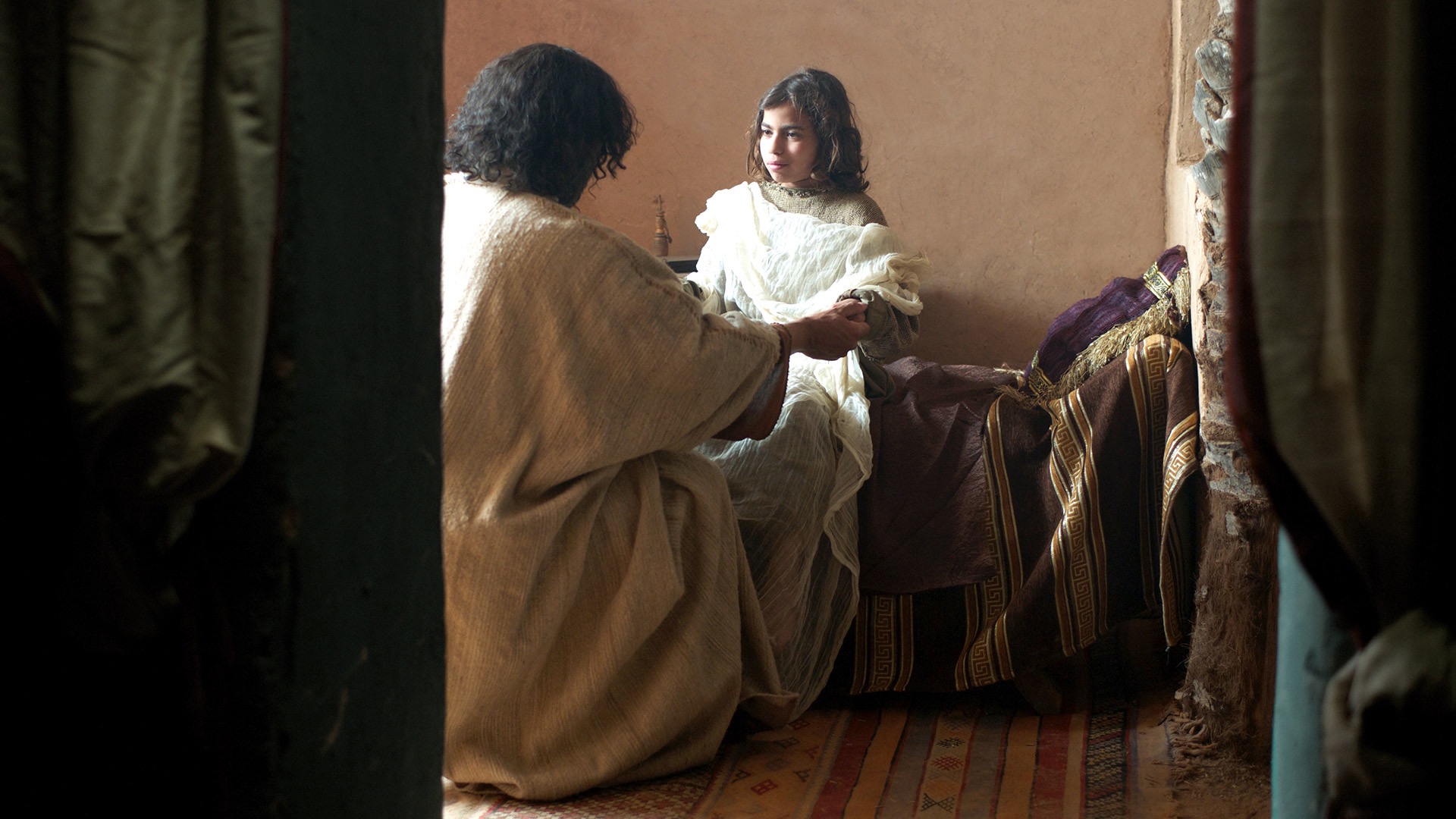Few tragedies wound with as much trauma and inflict such deep sorrow as the death of a child. Indeed, every death of someone close to us can rattle us down to our marrow. However, something about the death of a child dismantles our strength. It challenges the faith of even the strongest of Jesus' followers.
I still hear the wailing sorrow of a dear friend being told her son had died. I watched this past Sunday as a sweet friend held an aged mother as she shook with grief after losing her adult son unexpectedly. I have felt the bitter chill of a nasty, wet, early spring north wind as it gouged empty canyons into the grief-stricken hearts of a young couple as they buried their baby boy. Losing a child is unspeakably hard. Such a death mocks us in its unfairness of parents having to bury children. Everything in us cries that children should bury parents.
Maybe that is why I am touched so personally by John's account of Jesus' words to Mary from the cross:
Near the cross of Jesus stood his mother, his mother's sister, Mary the wife of Clopas, and Mary Magdalene. When Jesus saw his mother there, and the disciple whom he loved standing nearby, he said to her, "Woman, here is your son," and to the disciple, "Here is your mother." From that time on, this disciple took her into his home (John 19:25-27).
These words are poignant and touching. They reach across the centuries and put a human face on the cross's tragic and brutal nature. This story reminds me that the crucifixion is more than a story about an obedient and divine Son submitting to the will of the Almighty God, his Father. The cross is also a story of a mother and her beloved son. Mary's boy was savagely beaten, repeatedly mocked, openly ridiculed, and physically tortured and humiliated till he died. Through Mary's eyes, a little of God's pain becomes real. We can imagine the pain of a mother losing her son. God's grief becomes a little more comprehensible to us through the agony of Mary.
For me, the Lord's tenderness with his mother at his death makes two of Jesus' resurrection miracles all the more poignant.
Jesus' raising of Jairus' twelve-year-old daughter is as emotionally moving to me as a parent, as the miracle seems so simple for Jesus to accomplish:
While Jesus was still speaking, someone came from the house of Jairus, the synagogue leader. "Your daughter is dead," he said. "Don't bother the teacher anymore."Hearing this, Jesus said to Jairus, "Don't be afraid; just believe, and she will be healed."
When he arrived at the house of Jairus, he did not let anyone go in with him except Peter, John, and James, and the child's father and mother. Meanwhile, all the people were wailing and mourning for her. "Stop wailing," Jesus said. "She is not dead but asleep."
They laughed at him, knowing that she was dead. But he took her by the hand and said, "My child, get up!" Her spirit returned, and at once, she stood up. Then Jesus told them to give her something to eat. Her parents were astonished, but he ordered them not to tell anyone what had happened (Luke 8:49-56).
I love the phrase, "My child, get up!" I am reminded of a close friend who was deaf and has now gone home to the Lord. In his excitement and confidence, my friend looked forward to the day that he would meet Jesus. He often told us before his death, "The next voice I will hear is Jesus' voice. The first words I hear will be Jesus' saying, 'Lloyd, it's time to get up and come home with me!'"

I also love Jesus' tenderness with the widow at Nain. She is left all alone in a hard world with even harder grief when her only son dies. Luke chooses beautifully simple language to emphasize Jesus' compassion for the mom as he deals with the death of her son with little fuss and great tenderness:
Jesus went with his disciples to the village of Nain, and a large crowd followed him. A funeral procession was coming out as he approached the village gate. The young man who had died was a widow's only son, and a large crowd from the village was with her. When the Lord saw her, his heart overflowed with compassion. "Don't cry!" he said. Then he walked over to the coffin and touched it, and the bearers stopped. "Young man," he said, "I tell you, get up." Then the dead boy sat up and began to talk! And Jesus gave him back to his mother (Luke 7:11-15 NLT).
What a precious way to describe such a life-changing moment: Jesus gave him back to his mother. Oh, how every parent who has lost a child to death could experience such sweet grace!
I don't have the right words or any simple answers for parents who bury children. I hope I am like the dear Christian brother who looked into the aged mother's eyes Sunday. Then, he lovingly said, "I am sorry. We love you. We hurt with you. Your group of friends will stand by you." Then without trying to explain, he hugged her, listened to her some more as she described her shock and pain. Then, he held her shoulders and told her gently and tenderly what he has said to reassure her earlier. A moment later, he hugged her again and let her tears fall on his shoulder as her shaking subsided.
Very truly I tell you, a time is coming and has now come when the dead will hear the voice of the Son of God and those who hear will live (John 5:25).
At that moment, each believing parent receives the blessing of Jesus giving that child back. Only this time, all reunions will be permanent, all tears will be wiped away by the Lord's loving touch, and all separations will be banished to the broken world left behind.
And I heard a loud voice from the throne saying, "Look! God's dwelling place is now among the people, and he will dwell with them. They will be his people, and God himself will be with them and be their God. 'He will wipe every tear from their eyes. There will be no more death' or mourning or crying or pain, for the old order of things has passed away" (Revelation 21:3-4).

Special thanks to The Lumo Project and Free Bible Images for images related to the ministry of Jesus.












Comments
Have thoughts on this article? Leave a comment